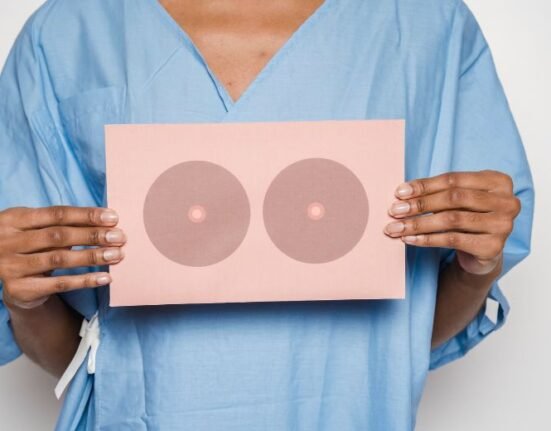HQ Team
June 4, 2025: A third of patients with a type of blood cancer, especially those whose disease had returned or not responded to other treatments, have shown “promising” results in an early Johnson & Johnson trial.
The experimental treatment called JNJ-5322 was used in patients with multiple myeloma and involved 126 patients with multiple myeloma who had already tried many other treatments without success.
Among 36 patients who received the dose planned for the next phase of testing, 86% showed a positive response to the treatment. In 27 patients who had never received therapies targeting three different proteins before, the response rate was 100%, according to a J&J statement.
The treatment is an antibody designed to attach to three different targets on both cancer cells and immune cells simultaneously, thereby helping the immune system better recognise and attack the cancer.
‘Trispecific antibody’
It is a “trispecific antibody,” meaning it can connect to three different proteins — two found on multiple myeloma cancer cells (called BCMA and GPRC5D) and one on immune T-cells (called CD3).
The triple targeting makes the treatment, administered once a month starting with a small initial dose followed by a regular monthly dose, more effective by attacking cancer cells in multiple ways, and reducing the chance that the cancer can escape or become resistant, according to the statement.
Multiple myeloma is a tough-to-treat cancer that affects plasma cells in the bone marrow. Many patients eventually stop responding to existing therapies.
JNJ-5322 showed strong early signs for patients who have run out of other options, with a promising balance between effectiveness and safety.
Cytokine Release Syndrome
The most common side effect was cytokine release syndrome, which happened in about 59% of patients but was mostly mild to moderate.
Some patients had serious infections (28%), and there were a few deaths related to treatment side effects, including one linked to the drug. Other side effects included changes in taste, dry mouth, and mild weight loss, but these were generally manageable.
“These promising data are a major step forward as Johnson & Johnson works to transform outcomes in oncology with next-generation immunotherapies, building on our leading portfolio of complementary and combinable therapies,” said Jordan Schecter, M.D., Vice President, Research & Development, Multiple Myeloma, Johnson & Johnson Innovative Medicine.
“We look forward to seeing the results of planned Phase 2 and Phase 3 studies,” he said.
Incurable disease
Multiple myeloma is a blood cancer that affects a type of white blood cell called plasma cells, which are found in the bone marrow.
In multiple myeloma, these malignant plasma cells proliferate and replace normal cells in the bone marrow. Multiple myeloma is the second most common blood cancer worldwide and remains an incurable disease.
“The response rate with JNJ-5322 is encouraging as we explore the potential of this trispecific antibody for the treatment of relapsed or refractory multiple myeloma patients,” said Niels van de Donk, MD, PhD, VU University Medical Center, Amsterdam, Netherlands. “In addition to its monthly dosing and promising efficacy, the results indicate a promising safety profile and that further study of JNJ-5322 is warranted.”
The study’s findings were presented at the 2025 American Society of Clinical Oncology (ASCO) Annual Meeting.








